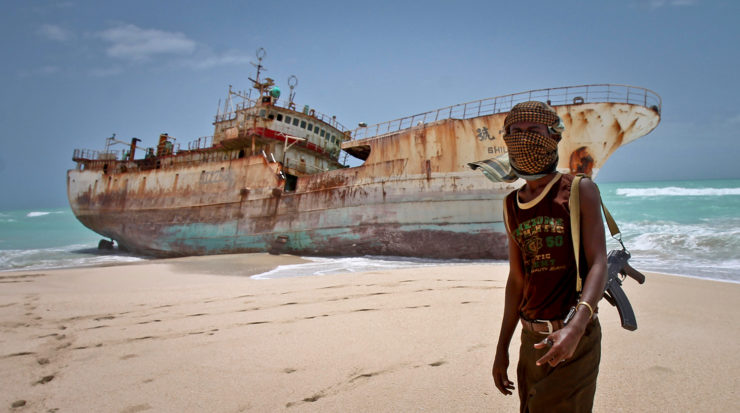
Very much like the rest of the world, Africa is changing. China, as a major investor in Africa, is one such source of change. But a recent surge in the investment made by the Gulf states has also started to leave its impact on Africa’s politics and economy. To the extent that Gulf states – especially, Saudi Arabia and the United Arab Emirates (UAE) – are trying to diversify their economies, Africa has become a major destination of their immense wealth. Africa’s untapped natural resources are an attractive – and lucrative – site for Gulf states, but in their struggle for influence and to expand their geopolitical reach, Africa is also a landmass that these states want to have under their control to reinforce their power and influence in this increasingly multipolar world. Having more and more allies in Africa translates into becoming more and more powerful regionally and globally. In Africa, therefore, Gulf geoeconomics is reinforcing Gulf geopolitics.
Within the (Sunni) Gulf world, two centres of power have already emerged, with the UAE and Saudia now openly opposing each other and vying for dominance beyond the Middle East. This struggle is not limited to the Gulf region, as the urge to diversify economies and invest money is intrinsically tied to the urge to defeat regional rivals. Africa is, thus, receiving both.
There is little denying that Gulf states have collectively emerged as big investors. As a recent report said, total Gulf investment in Africa has already surpassed US$ 101 billion. Gulf, in other words, has already left the US behind, which has around US$50 billion in direct investments in the continent. Russia is aiming to reach its target of a US$40 billion investment in Africa in next few years. In 2022, Europe committed US$170 billion to investment in Africa. Much of it is yet to materialise. China had US$254 billion in 2021, but China alone cannot cover the whole of Africa. What it means is that there is a lot of room for the resource-rich and investment-hungry Gulf states to exploit that space.
According to the said report, the UAE has emerged as the biggest Gulf investor in Africa with US$59.4 billion. Saudia is behind the UAE with US$25.6 billion. Qatar, Kuwait and Bahrain are also investing billions. Key sectors of Gulf investment include financial services, transport and warehousing, environment technology, electronics, and construction. Key countries receiving the bulk of this investment include Egypt (US$69.8 billion), Morocco (US$4.6 billion), Algeria (US$3 billion), Nigeria (US$2.6 billion) and South Africa (US$2.3 billion). In 2022, the UAE signed a US$6 billion project with Sudan to build a Red Sea port.
But Sudan is also one key case study that provides crucial insights into how the emergence of Gulf states in Africa is also introducing new conflict faultlines in the region. In the months-long still ongoing civil war in Sudan, both the UAE and Saudi Arabia have locked hones. Whereas the UAE is supporting Hemeti, who is leading the Rapid Support Force, Saudi Arabia is backing Abdel Fattah al-Burhan, who is leading Sudan’s military forces and has been Sudan’s ruler since the 2019 coup that forced Omer al-Bashir out of power, who had close ties with Qatar and Iran. Burhan was quickly embraced by Saudi Arabia, showing how the powerful Gulf state reinforced Sudan’s ‘new’ political reality. Back then the UAE also supported Bashir’s overthrow, as he was seen as a problem for his close ties with rival states. But his overthrow provided both Saudi Arabia and the UAE – two states already fighting each other for influence – to woo Sudan’s new leadership into their axis. This proved to be harder than they might have thought, with the subsequent civil war becoming a mechanism for settling this on the battlefield.
But the inability of both warring leaders to impose their favourite result on the other has created a very complicated scenario. For the Saudi-backed Burhan, engaging with the UAE has become important because Abu Dhabi is seen as the only state that may have some leverage on Hemeti. On the other hand, for Hemeti-led RSF, the fact that Burhan is Sudan’s leader – and enjoys international legitimacy and recognition – makes it very hard for the former to defeat the latter. For Hemeti, it also means that talking to, and via, Saudi Arabia for settlement is indispensable. This was probably at the heart of the RSF’s decision to send a delegation to Riyadh for negotiations.
While no agreement could be made, there is little denying that both the UAE and Saudi Arabia are directly involved in this conflict, both as supporters of key warring parties and as mediators. Consequently, both parties are playing a politics of leverage insofar as both are relying on their preferred local leaders and both are trying to preserve them. For Sudan and its people, however, this is a dangerous situation insomuch as it could divide Sudan into two zones (like Libya) and cause the conflict to spread and become permanent.
What is the lesson for the African states in this Sudanese episode? There is little denying that Africa has a lot of potential. In fact, as the said report pointed out, Africa retains the potential to become the world’s manufacturing hub. It means that there is a lot of opportunity for investment-hungry states in the Gulf to exploit. But, for Africa, to exploit the eagerness of these states to diversify their economies and invest in Africa, it is imperative that it stops turning itself into a proxy land for Gulf states to play out their rivalries and conflict. If that keeps happening, the only outcomes that countries like Sudan will see, or countries Libya and Yemen have seen, are de facto internal splits and permanent conflict rather than development.
Salman Rafi Sheikh, research-analyst of International Relations and Pakistan’s foreign and domestic affairs, exclusively for the online magazine “New Eastern Outlook”.
